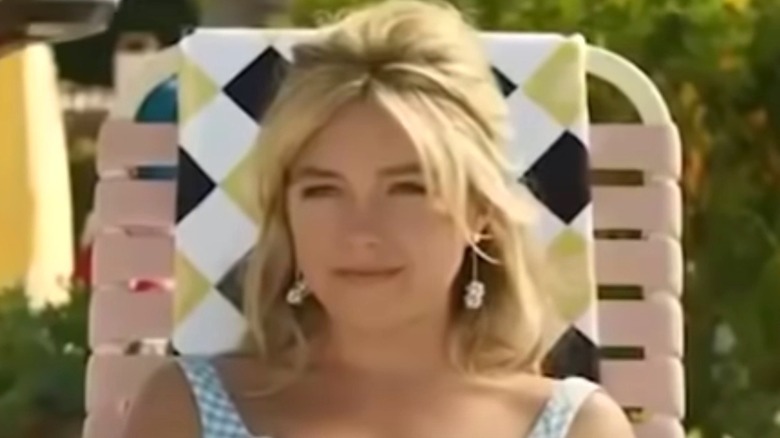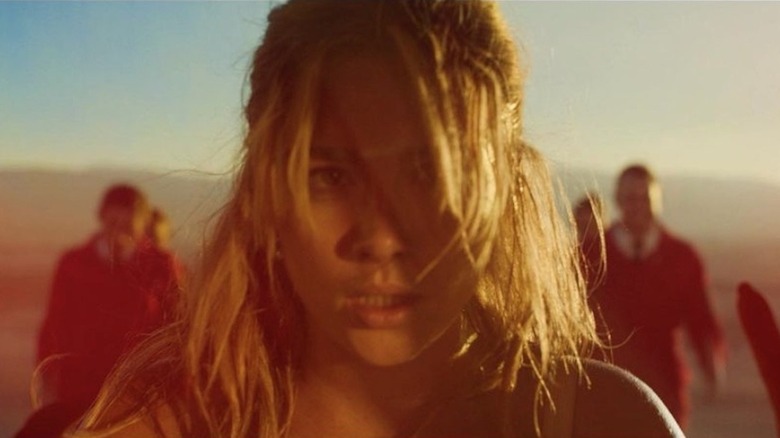The First Teaser For Don't Worry Darling Is Getting Fans Intrigued
If you've been tracking the head-spinning comings and goings of movie release dates this year, you probably know that 2022 is shaping up to be an absurdly busy year at the theater. One might even say the 2022 landscape will be overstuffed to the point that it'll be nearly impossible to keep up with what movies are premiering from one week to the next. There are obviously "must-see" films aplenty on their way as well, but if there's one that should be near the top of every movie lover's list, it's director Olivia Wilde's sophomore feature, "Don't Worry Darling."
Wilde earned rave reviews after directing her first feature film, 2019's pitch-perfect coming-of-age comedy, "Booksmart." She's set to do some serious genre-jumping in her follow-up film, with "Don't Worry Darling." The psychological thriller stars Florence Pugh as a '50s housewife whose near-perfect life in an unusual community begins to unravel when she discovers the company employing her husband (Harry Styles) is hiding some sinister secrets.
Co-starring Chris Pine, Gemma Chan, and Wilde herself, "Don't Worry Darling" is slated to debut on September 23, 2022. If the film's first official teaser is any indication, we're in for an eerie cinematic treat when it premieres.
Fans cannot wait to get a proper look at Don't Worry Darling
The "Don't Worry Darling" Instagram teaser has fans buzzing, even though it offers very minimal footage from the film. There are a few brief glimpses of stars Florence Pugh, Harry Styles, and Chris Pine and a little insight into the film's overarching narratives. It's safe to say Olivia Wilde's social media release strategy was a rousing success as her fervid fanbase has been whipped into a frenzy.
That frenzy is evident in the comments section of Wilde's post, which is rife with kind words from fans bestowing praise on the actor-turned-director, and unabashed excitement to see what she's got in store for her second feature film. User benskervin was among the first to respond, enthusiastically posting, "Soooooooo exciting" with a handful of fire emojis. Instagrammer evanrosskatz soon followed, offering simply, "I'm shaking" after witnessing the footage himself. And Insta user hotpatooties replied to Wilde's post in all caps stating, "SO DAMN EXCITED FOR THIS."
The overwhelmingly positive reactions only continued from there, with fans voicing and boundless love and support for Wilde. There was just as much enthusiasm for the release of "Don't Worry Darling" — even as many bemoaned that they'd have to wait a full year to see it. Lengthy wait aside, the film has already become one of 2022's "must-see" movies for many.

